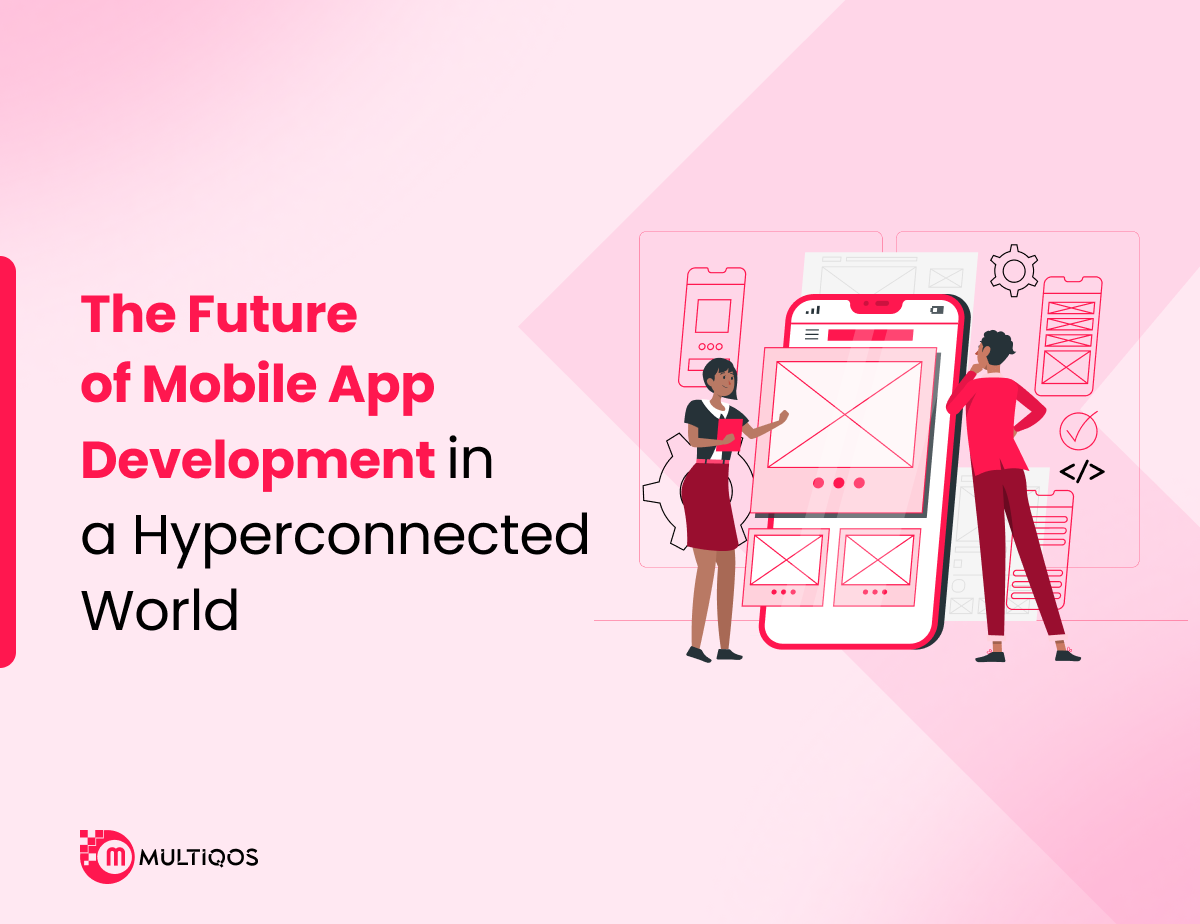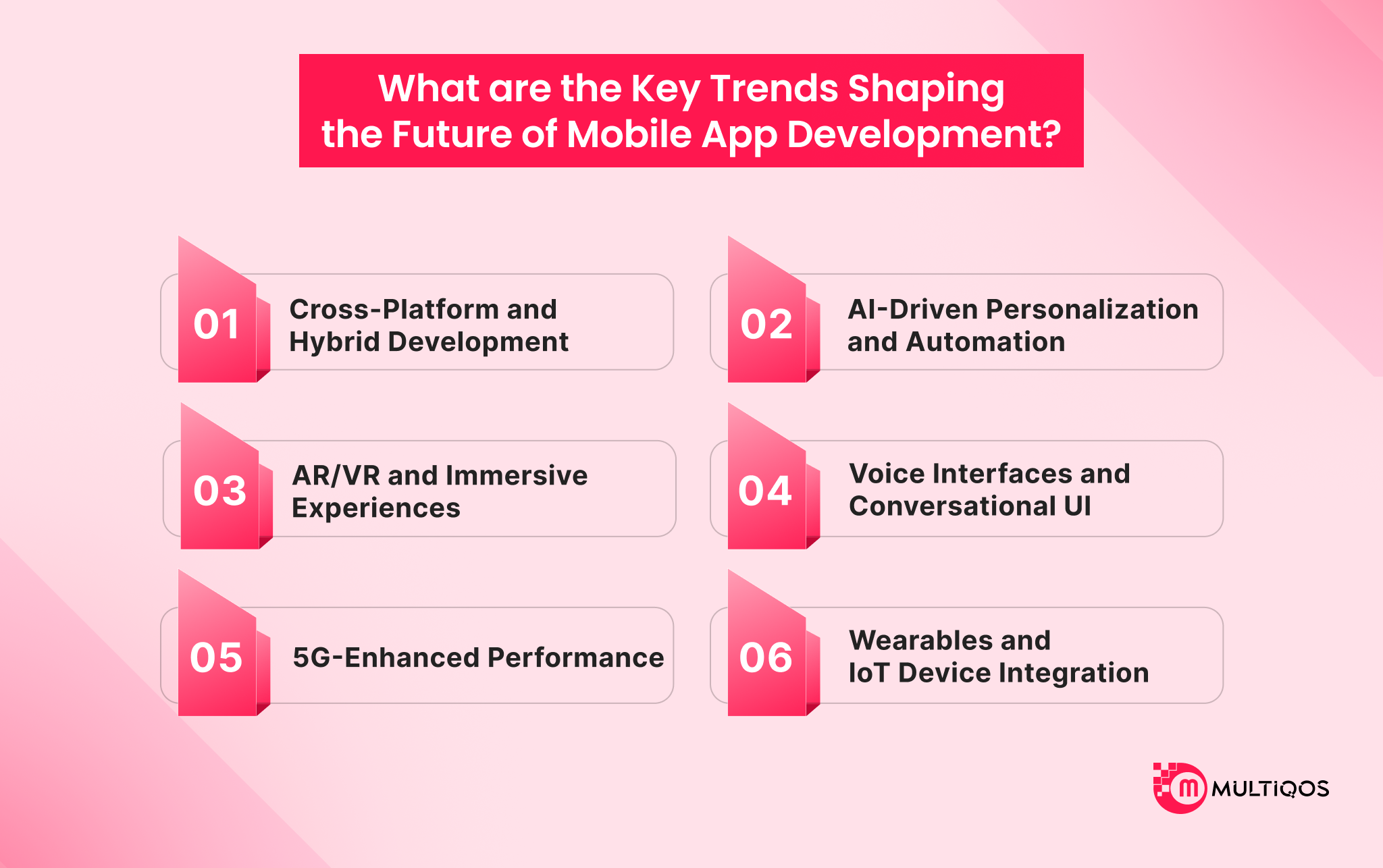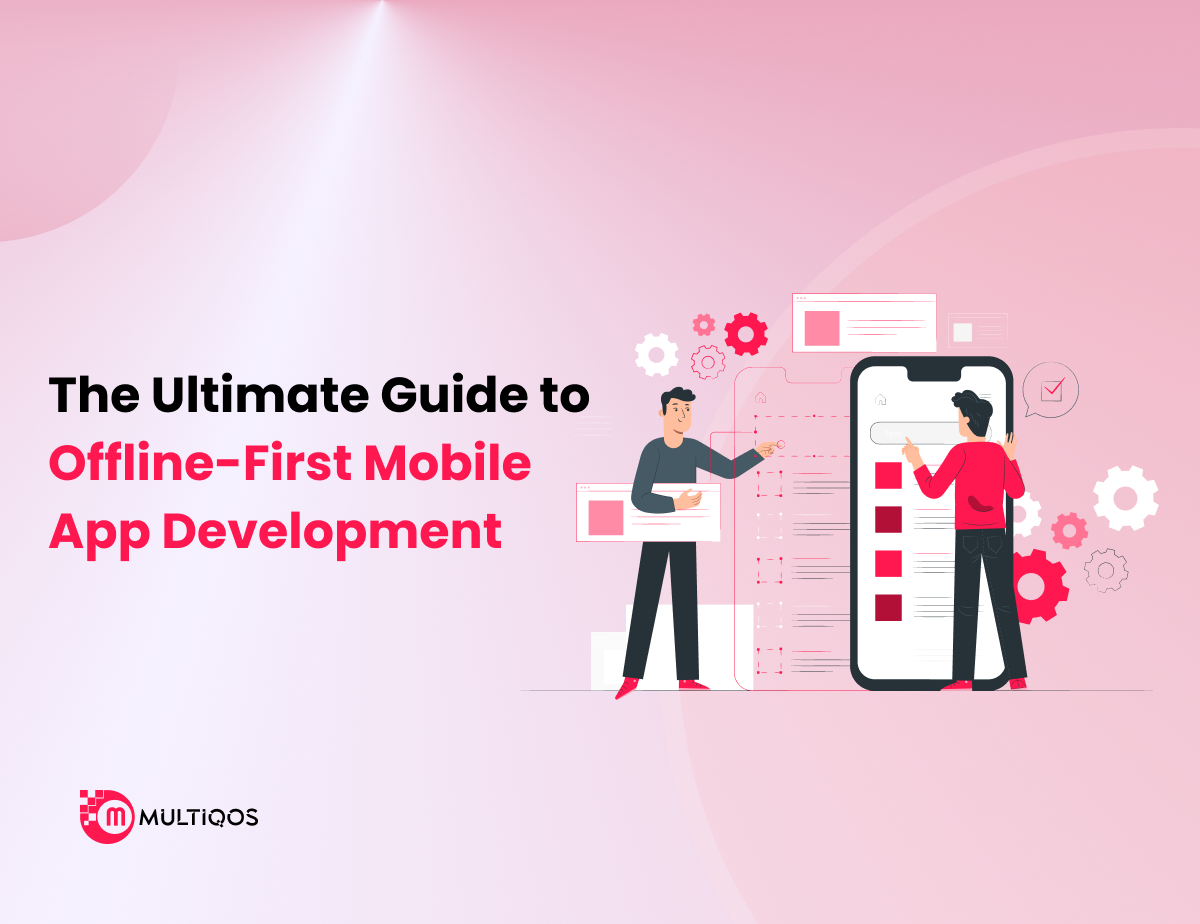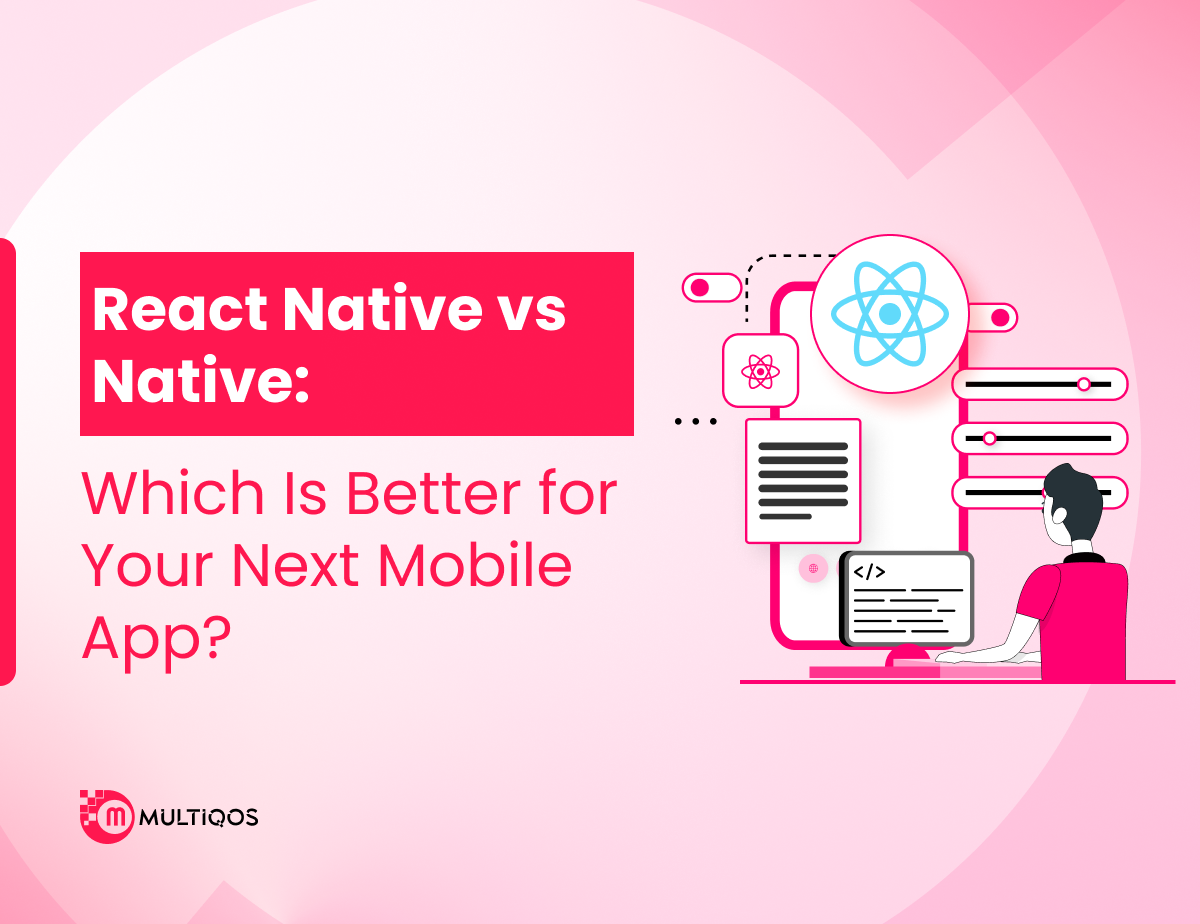The Future of Mobile App Development in a Hyperconnected World

Summary :
As we move deeper into the era of hyperconnectivity, the future of mobile app development is undergoing a major transformation. Innovations such as 5G, AI, AR/VR, and the Internet of Things (IoT) are driving new expectations for speed, personalization, and seamless integration across devices.
This blog explores how these technologies are influencing mobile app design, performance, and user engagement. It also looks at the rise of cross-platform tools, low-code development, and security-first approaches that are becoming essential in today’s always-connected environment. Whether you’re a developer, tech strategist, or business owner, understanding these trends is crucial to staying ahead in the competitive mobile landscape.
Introduction
We live in a time where connection is no longer a luxury, but a standard status. From smartphones and wearables to smart houses and connected cars, the world around us is being integrated quickly through digital networks. Since users rely on mobile techniques for fast communication and shopping for health and entertainment, the pressure is to create an app with smart, fast, and more intuitive knowledge.
In this hyper-connected world, the future connection to mobile apps, computing power, and fast progress in the user’s expectations has been shaped. Developers no longer code for the tool; they create experiences that span platforms, estimate the user’s needs, and react in real time.
Let us tell the most important trends that will shape the future of mobile app development in the next phase of innovation to stay ahead in the competitive market.
What are the Key Trends Shaping the Future of Mobile App Development?
Development opportunities in technology never end, and as technology develops, the future of mobile app development redefines the latest innovations and expectations of users. Below are the most important trends driving this change:
1. Cross-Platform and Hybrid Development
Demand for market and cost-effective solutions from time to time has quickly popularized the framework on different platforms, including Flutter, React Native, and Xamarin. These devices allow developers to write a barcode and distribute it on several platforms, leaving development time and resources.
In the future of mobile app development, this approach will dominate, as companies want frequent user experiences in iOS, Android, web and even desktop environment.
2. AI-Driven Personalization and Automation
AI is at the heart of personal mobile experiences. One of the most influential applications is AI-driven UI personalization, where the dynamically app interface adjusts user preferences, habits, and contexts that provide a more comfortable and satisfactory user journey.
Over the coming years, AI in mobile app development will be a main component in the future of development, making the apps smart, more attractive, and very responsive to individual user needs.
3. AR/VR and Immersive Experiences
AR/VR redefine how users interact with the mobile app, leading to more attractive and engaging experiences. From sports and entertainment to e-commerce, education, and manufacturing, AR/VR technologies enable the real world, virtual tourism, 3D visualization, and simulation of interactive learning modules.
Like, hardware becomes more powerful and accessible, developers will use architects, Arcore and other platforms to bring these experiences to life. In the future, engaging apps will not only capture users but will also provide practical value through innovation and dedication.
4. Voice Interfaces and Conversational UI
The emergence of voice assistants such as Siri, Google Assistant, and Alexa has changed the expectations of the user around hands-free and natural interactions. Voice user interface (VUI) and interactive user interface are able to control the application, now information, and manage complete tasks using speech, making the app more accessible and intuitive.
With progress in NLP and speech recognition, mobile apps will integrate rapid voting functions and an AI-operated Chatbot. This trend is especially important for increasing the user facilities in access, multitasking, and many demographics.
5. 5G-Enhanced Performance
The adoption of 5G technology for the future of mobile app development provides quick and better network reliability. The boost in connection discovers the latest options, such as HD video streaming, real-time systems, and AR/VR applications.
Developers can now create apps that benefit from rich multimedia content, sharp shooting, and immediate responsibility without compromising the user experience. As the 5G adoption increases globally, apps that use its abilities will set the standard for speed and performance.
6. Wearables and IoT Device Integration
The expansion of IoT and portable equipment, from SmartWatch and Fitness Trackers to Smart Home Systems, requires spontaneous integration with mobile applications. Users expect to communicate with their devices and sync their ecosystem.
Developers should prefer interoperability, data sharing, and minimum battery consumption when using a designer for IoT. Mobile app development services will serve as control hubs, which will offer integrated dashboards, alerts, and automation tools that bridge the digital and physical world.
How to Future-Proof Your Mobile App Development?
In today’s rapidly changing technical scenario, the development of an app is not enough; it should be ready for the future. Here’s how:
- Think long-term: Design with scalability and adaptability.
- Use modern technology: Choose frames and languages that are supported and have been developed a lot.
- Be aware of UX: A simple, simple experience will always be relevant.
- Prioritize security: Be in front of hazards with regular updates and strong security practices.
- Stay agile: Embrace flexible development to adapt to user needs and market changes.
- Plan for integration: Make sure your app can connect to other systems and platforms as needed.
Wrapping Up
As the digital landscape is interconnected, the future of mobile app development is in creating spontaneous, intelligent, and user-centric experiences on devices and platforms. From AI-interacted capitalization to 5G-enabled real-time capabilities, mobile apps are developing beyond their traditional boundaries; Therefore, there should be developers behind them.
In order to remain competitive in the digital age, companies must invest in talent that accepts new techniques, innovations, and user-centered designs. Whether you are planning to improve an existing app or want to expand the digital ecosystem, it is necessary to hire mobile app developers who are well aware of the latest technology implementation and are further conscious and have adaptable technical knowledge.
FAQs
A hyperconnected world is a room where equipment, systems, and people are connected through the Internet. For software professionals and developers, it refers to creating functional apps that can handle real-time data, continuous user engagement, and spontaneous integration.
AI’s not just a trendy term anymore. It quietly figures out what you’re into, suggests relevant content, or even has a basic chat with you. It makes apps feel a bit more personalized and way less generic, you know?
There’s a bunch. 5G makes loading instant. AI and machine learning add smarts. Tools like Flutter let developers build for both iOS and Android at once. And AR, VR, plus IoT? They’re opening doors for new kinds of app experiences.
The trick is staying flexible. Build so you can add or change bits later without starting fresh. Listen to real users. Keep it secure, fast, and useful. If your app continues solving real problems, it’ll still be in the game.
Get In Touch







